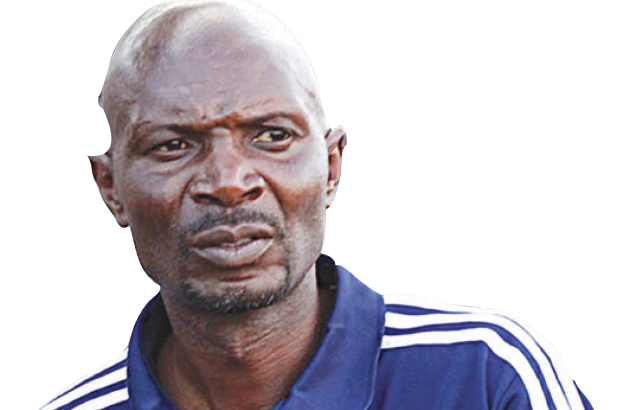Allow corrective punishment in schools

 Saul Gwakuba Ndlovu
Saul Gwakuba Ndlovu
A STORY published in the Saturday Chronicle of August 1, 2015 that some Milton High School pupils were injured by other pupils of the same institution and had to be taken to hospital made very depressing reading, to put it mildly.
The incident was said to have occurred hardly a month after some pupils of the very same institution were rounded up at the Centenary Park in Bulawayo consuming alcoholic beverages and sexually misbehaving with female pupils from one or two other city schools.
It is surely without any doubt that parents and guardians of pupils of schools whose pupils have been repeatedly caught publicly misbehaving are deeply worried about all this. Why?
Because parents and guardians send their children to schools to acquire not only academic or professional education, but moral moulding and physical training as well as spiritual guidance.
Every professionally qualified teacher, (the author of this article is one such teacher) derives a great deal of pride in producing academically excellent, morally upright, physically fit and spiritually sound pupils who become both useful and usable to their respective families, communities and nations.
A school whose former pupils are largely associated with crime, drunkenness, thievery, prostitution, dishonesty, disrespectfulness and public violence gets publicly discredited sooner than later, and so are its professional staff members.
In this article, we would like to emphasise the role of every professional staff member in the all-round education of every pupil at every school, college and even university.
Looking at a teacher’s purely academic role, we realise that one who teaches languages has the professional responsibility to teach and use respectable and respectful vocabulary, manual gestures and other body language signs to communicate his wishes.
That creates within the pupils the habit to use words, gestures and body language signs that generate mutual respect among members of families, communities and the nation as a whole.
A Mathematics teacher is meant to engender in the pupil or student a feeling of appreciation of commercial, economic exchanges or undertakings. The mathematics pupils must sooner or later become sensitive to time and distance, that is to say the pupils will have been sensitised to the importance and significance of the second, the minute, the hour the day, the week, the (calendar) month and the year (the clock and the calendar) in relation to his or her life in general.
A social geography teacher helps pupils to understand the ethnic location of people and how each community relates to and interacts with its local or regional physical environment or ecology.
That knowledge is meant to conscientise the recipients to the importance of ecological conservation as upheld by practice, custom and tradition and as propagated by modern environmentalists. Social geography lessons are meant to produce, among other objectives, environmental friendly communities.
We now come to an extremely important subject, religious knowledge, the most vital message of which is “to do unto others as you would want them to do unto you”. Self-control is another important virtue acquired through religious knowledge.
The teaching of religious knowledge is not meant only to enable the pupil to pass his or her examinations. In addition to that form of evaluation, religious knowledge lessons are expected to mould the pupil into a love- oriented person with whom it is pleasant to live in a family, a community and in the nation as a whole.
Whether or not a school teaches religious knowledge in all or some of its classes does not stop it from instilling in its pupils a feeling of respect of other people, young or old, able-bodied or disabled, rich or poor, educated or uneducated, male or female.
A violation of that golden rule (do unto others as you would want them to do unto you) should be punishable without any hesitation as a corrective measure.
Heads of schools would be strongly advised to convince higher educational authorities that corrective punishment should always be allowed to play a role in any public educational institution.
And that punishment should be done publicly or applied privately depending on the kind of punishment imposed. A culprit who is given manual labour as punishment should do it publicly but where corporal punishment is the choice, it should be given in the presence of not more than three other people.
Some parents may object to the use of corporal punishment as a corrective measure. That is particularly the case with female single parents many of whom tend to pamper their children. Their anti-corporal punishment sentiments should be ruled out by the higher necessity to change erring children from their anti-social activities to the path of acceptable social behaviour.
This suggestion is quite appropriate in view of a recent court decision that parents and guardians many now lawfully administer corporal punishment on their children.
A teacher’s position vis-a-vis pupils is that of a parent away from home. Parents and guardians should understand this teacher-pupil relationship, not just to understand but to appreciate it most deeply.
Taking Milton High School as the subject of this debate, we can certainly say that there is need, yes, a very urgent need to look into the behaviour of that schools pupils at school. The head of that institution has the sole responsibility to discuss the issue with, first, other staff members and, second, with the parents and guardians and, third, with higher education ministry authorities.
Whatever steps are taken, it is clear that stern measures are required to arrest the deteriorating situation lest it gets worse.
If no firm steps are taken to correct the unfortunate situation, an impression may be created that the Milton High School authorities have virtually abdicated from their loco parentis position, a development that may need intervention by higher authorities sooner than later.
- Saul Gwakuba Ndlovu is a retired, Bulawayo- based journalist. He can be contacted on cell 0734 328 136 or through email [email protected]








Comments